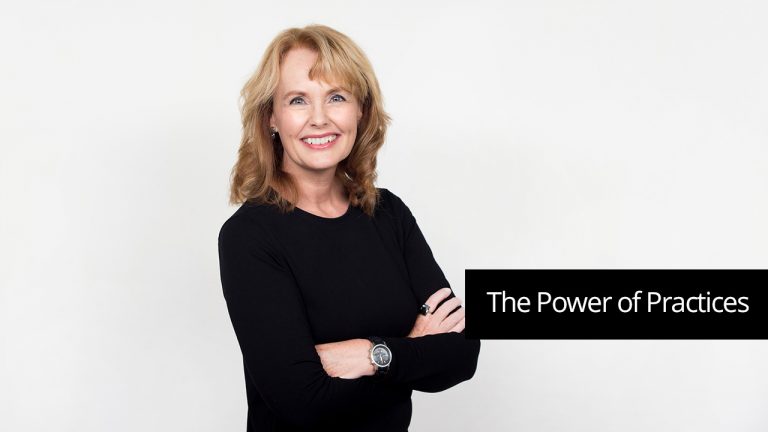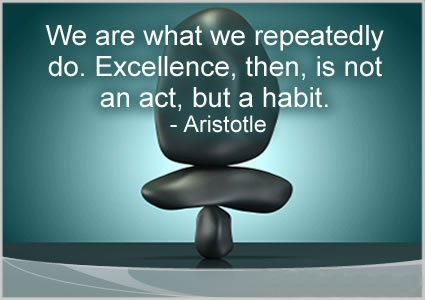The Secret To Creating New Possibilities – by Terrie Lupberger
Feeling stuck? Want the secret to more satisfaction, creativity and meaningful relationships in your life?
It’s simple. It’s very hard to do, but it’s simple.
Here it is: Judge less!
We judge constantly and aren’t even aware of it most of the time. ‘I don’t like that.’ ‘I do like this.’ ‘I agree with them. I don’t agree with them.’ ‘They’re right.’ ‘He’s wrong.’ ‘That’s good.’ ‘That’s bad.’ ‘He’s lazy.’ ‘She can’t be trusted.’ ‘I should have known that.’ Etc.
We not only spend much of our time and energy judging but, what’s worse, is that we then come up with reasons to justify why we believe what we believe so we can be right about it. And, we human beings LOVE to be right. We will kill off (metaphorically speaking) relationships, ideas, people, to prove how right we are and how wrong they are.
Consider, however, that your conclusions and judgments will condemn you to do more of the same and produce the same results. Every time you have a judgment or point of view about something or someone, you limit what else is possible. You limit your options and your choices. Let me give you a few examples:
“I’m too old/ too young to ______.”
“No one really appreciates that I’m doing most of the work around here.”
“I can’t do anything about that problem; it’s not my department. They should _______.”
“I’m unhappy in my job, but I need to stay. We need the money and in this economy it’s too risky to make a change.”
“It’s not my dream, but I have to support my partner in the business; we can’t afford to hire employees.”
Sound familiar? Maybe not the specific content but do you feel the mood of these? All conclusions about how it is. No possibilities. No room for exploration or inquiry as to what else might or could be possible.
Once you have concluded that they are wrong, or that you are wrong, then you have to live from that frame of reference (or admit you were wrong to begin with which we hate to do). You close off potentially powerful and meaningful connections, conversations and relationships. You close off opportunities for innovation and creativity.
Of course, some of the conclusions we make are made by conscious choice. We are aware we are making them. For example, you might choose to take that particular job because you don’t think you’ll mind the extra travel; you decide to move to that new neighborhood because you assess the schools will be better for your kids; you go back for that master’s degree because you believe you’ll be more marketable.
Sometimes you have to make a judgment. That’s what managers get paid to do. They make judgments of who to hire and fire, who should get promoted, how the customer should be communicated with, etc.
I’m not saying that judgment doesn’t have its function in the world. I’m saying that most of the time we don’t know we are judging; we have concluded that this is the way things are – that this is the way I am. We are mostly blind to our conclusions and judgments; we make them out of habits and histories. And then we try to design futures based on conclusions we didn’t even know were running our thinking.
So, what do you do instead? Try practicing having more questions than conclusions!
By practicing leading and living from questions instead of conclusions, you’re freed up to make different choices that are more aligned with what YOU care about. Let me give you some examples:
Conclusion: “I am afraid to apply for that position because it involves public speaking and I can’t get up in front of people and talk.”
Question: “I wonder what it will take for me to love sharing my message with people?” “What can I learn so this new position is a perfect fit for me?” or “Who said I can’t get up in front of people? Am I finally willing to let go of that old story so I can have a different future?”
OR
Conclusion: “I can’t confront my boss about the unreasonable work hours. That will put a black mark on my record for sure. I’m lucky to have a job in the first place.”
Question: “I wonder how I could talk to my boss about the work hours so he/she gets that I care about my job and this organization?” “Is there another perspective on this than the one I’m seeing right now?” “I wonder who I could ask for help from on this issue?”
Can you feel the mood shift with the questions? Can you feel more expansiveness with the questions? Can you sense how the questions open new possibilities more than the conclusions?
This practice of replacing conclusions with questions may be difficult at first. You may not know what questions to ask. You may not even be able think of a question since your habit is to conclude and assess. When you start asking questions you may also be tempted to come up with all the reasons why your original conclusion is “true”. Your old habits of thinking will kick in with a desperate attempt to win you back to your familiar ways of doing things.
But, keep at it! And, if you can’t think of a question ask this one: “What am I not seeing about this situation that might open up a new way forward?”






